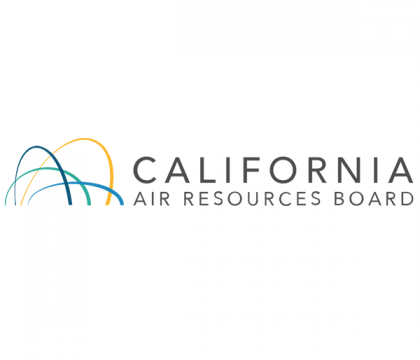2025 Shultz Energy Fellowships: California Air Resources Board, Climate Investments Branch
Regional-, state-, and city-level efforts are essential in our fight against climate change, especially in the field of energy. Stanford University is committed to helping by integrating its students into energy and climate ecosystems in the West through the Shultz Energy Fellowships program, an energy-related summer fellowship program for undergraduate and graduate students.
Named in honor of former Secretary of State George P. Shultz, one of the most widely admired American public servants of the past half-century, the program offers a suite of paid, energy-related public service fellowships for Stanford students in California, Colorado, Hawaii, Nevada, and Utah during the summer.
The fellowships run from Monday, June 23, 2025 to Friday, August 29, 2025.
Organization/Agency mission or role in state government
The California Air Resources Board (CARB) is charged with protecting the public from the harmful effects of air pollution and developing programs and actions to fight climate change. CARB's mission is to lead by driving innovative solutions to improve public health and the environment. From requirements for clean cars and fuels to adopting innovative solutions to reduce greenhouse gas emissions, CARB has pioneered a range of approaches that have set the standard for effective air and climate programs for the nation and the world. CARB leads the way by upholding five core values: collaboration, integrity, community, science-based, and equity. These core values are the pillars to achieving CARB’s ambitious environmental goals of providing healthful air for all Californians, achieving carbon neutrality and sustaining as net carbon negative thereafter, and reducing emissions in heavily burdened communities.
Potential Areas for Fellowship Projects
California Climate Investments is a statewide initiative that puts billions of dollars of Cap-and-Trade auction proceeds to work reducing greenhouse gas emissions, improving public health and the environment, strengthening the economy, and providing meaningful benefits to the most disadvantaged communities and low-income communities and households. The Climate Investments Branch works to advance policies and investments that address climate change, advance equity, and support quality of life for all people in California with a primary focus on the implementation of California Climate Investments. In carrying out this mission, the Climate Investments Branch develops tools and resources to inform climate-related policies and investments and collaborates broadly with a diverse set of partners on climate change.
The fellowship project will support the development of quantification methodologies to estimate the emission reductions of carbon capture, utilization, and storage projects and the emission reductions of carbon dioxide removal projects funded by California Climate Investments. The fellowship project may focus on carbon capture and utilization in the cement industry and direct air capture technologies funded by California Climate Investments. Depending on the fellow’s interests and skills, the fellowship project scope may include (1) conducting literature review to identify existing tools, models and quantification methodologies from the State and Federal resources as well as technical and industry standards globally, (2) evaluating these tools, models and methodologies and their technical documents to determine their key variables and assumptions, and (3) developing guidance with recommendations and examples for using these tools, models and methodologies to quantify the benefits of projects funded by California Climate Investments.
Potential Mentor
- Michael Harrodson, PhD, Air Resources Engineer, Climate Investments Branch
Work Environment
It is anticipated that this fellowship opportunity will be remote with optional in-person attendance. The California Air Resources Board is located in Sacramento, CA.
2024 Shultz Grad Fellow at CARB
- Max Kessler, PhD ’26 Mechanical Engineering
- Learn more about Max's experience at CARB:
- Basic understanding of California’s clean air and climate change policies
- General knowledge of emission quantification methodologies and modeling tools, preferably for carbon capture, utilization, and storage projects, and carbon dioxide removal projects
- Strong communication skills (both written and oral)
- A demonstrated desire to work in a team environment and collaborate with agency staff
All Shultz fellows must be enrolled in the spring quarter before their fellowship.
All Shultz fellows must take a one-unit spring workshop course, 'Energy Policy in California and the West' taught by Professor Bruce Cain and Visiting Fellow Felicia Marcus that will provide an in-depth analysis of the role of California state agencies, the Western Interstate Energy Board, and the Western Electricity Coordinating Council in driving energy policy development, technology innovation, and market structures. Course number is CEE 263G / POLISCI 73 / PUBLPOL 73 / ENERGY 73. Schedule: Wednesdays from 1:30 pm - 2:50 pm.
Please note that this opportunity is open to both undergraduate and graduate students with a preference for graduate students in the selection process.
